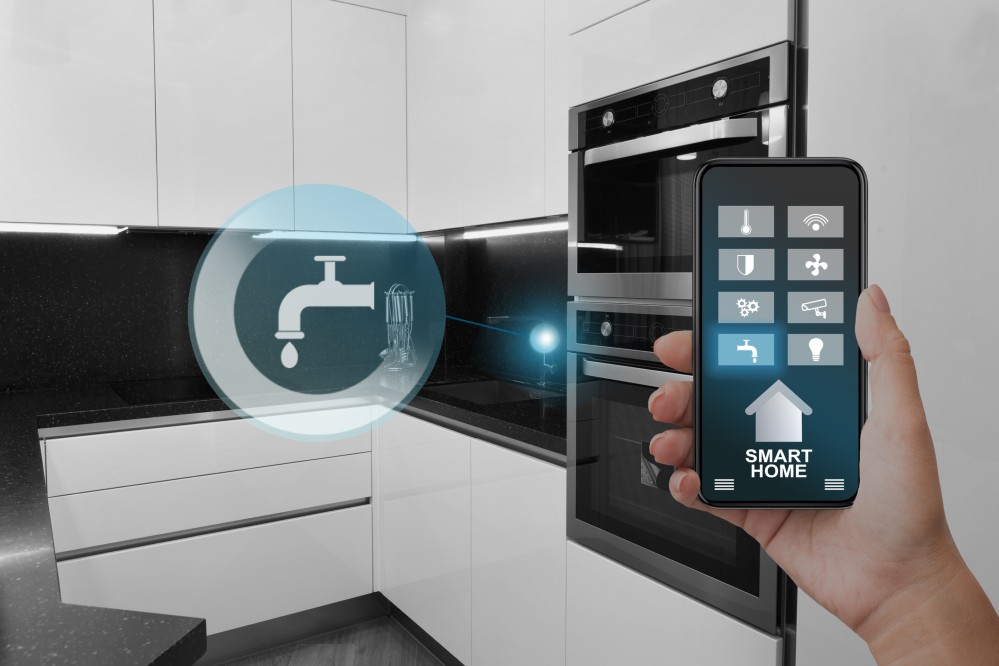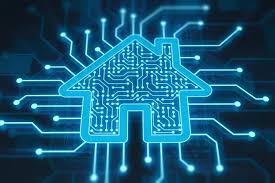Smart home water conservation technologies represent innovative solutions that combine advanced sensors, artificial intelligence, and automated control systems to optimize household water usage, detect leaks instantly, and reduce water waste while maintaining comfort and convenience for modern families. These intelligent systems monitor water consumption patterns, identify inefficiencies, provide real-time usage feedback, and automatically adjust water flow based on actual needs rather than predetermined settings that often result in overconsumption. Modern water conservation technology can reduce household water usage by 20-40% through smart irrigation systems, leak detection networks, efficient fixture controls, and behavioral insights that help homeowners make informed decisions about water consumption while supporting environmental sustainability and reducing utility costs.
This comprehensive guide examines cutting-edge water conservation technologies, their implementation benefits, cost savings potential, and practical applications for creating more sustainable and economically efficient residential water management systems.

Smart Leak Detection and Prevention Systems
Advanced Sensor Networks
Smart leak detection systems utilize wireless sensor networks placed throughout homes to monitor moisture levels, water pressure variations, and flow irregularities that indicate potential leaks before they cause significant damage or waste substantial amounts of water.
These sensors can be installed near water heaters, under sinks, around toilets, in basements, and other leak-prone areas to provide comprehensive monitoring coverage that alerts homeowners immediately when abnormal conditions are detected.
Smart waste management systems for modern homes demonstrate how sensor technology can optimize resource usage, and similar principles apply to water conservation where intelligent monitoring prevents waste while maintaining system efficiency and user convenience.
Real-time leak detection prevents minor issues from becoming major water damage events while eliminating the water waste associated with undetected leaks that can waste thousands of gallons annually in typical households.
Whole-House Water Monitoring
Comprehensive water monitoring systems track total household water consumption, identify usage patterns, and detect anomalies that could indicate leaks, malfunctions, or inefficient water usage habits throughout residential properties.
These systems can differentiate between normal usage events like showers, dishwashing, and lawn irrigation versus abnormal consumption that suggests leaks, running toilets, or other problems requiring immediate attention.
Machine learning algorithms analyze consumption data to establish baseline usage patterns and automatically alert homeowners when consumption exceeds normal ranges, enabling rapid response to water waste issues.
Smart Irrigation and Outdoor Water Management
Weather-Responsive Irrigation Systems
Intelligent irrigation systems integrate weather forecasting data, soil moisture sensors, and plant-specific watering requirements to optimize outdoor water usage while maintaining healthy landscapes and gardens through precise water application timing and volume control.
These systems automatically adjust watering schedules based on rainfall predictions, current soil conditions, and seasonal water needs, preventing overwatering that wastes water and can damage plants through root rot or nutrient leaching.
Zone-specific control enables different watering schedules for various plant types, sun exposure conditions, and soil characteristics, ensuring that each area receives optimal water amounts without waste or plant stress.
Soil Moisture Monitoring
Advanced soil moisture sensors provide real-time data about actual water needs in different landscape zones, enabling precise irrigation that delivers water only when and where needed rather than following predetermined schedules.
This technology prevents both overwatering and underwatering by responding to actual soil conditions rather than assumptions about plant water needs, resulting in healthier plants and significant water conservation.
Integration with local weather stations and evapotranspiration data provides comprehensive environmental information that optimizes irrigation timing for maximum plant benefit and minimum water consumption.
Intelligent Plumbing Fixtures and Appliances
Smart Faucets and Flow Control
Smart faucets incorporate sensor activation, flow rate adjustment, and usage tracking that reduces water waste from running taps while providing convenient hands-free operation for improved hygiene and water conservation.
Automatic shut-off features prevent water waste from faucets accidentally left running, while flow rate optimization ensures adequate water pressure for tasks while minimizing volume usage throughout daily activities.
Temperature pre-setting and instant hot water delivery systems reduce water waste associated with waiting for appropriate water temperatures, particularly beneficial for kitchen and bathroom applications.
High-Efficiency Smart Appliances
Smart washing machines and dishwashers optimize water usage based on load size, soil level, and fabric types to minimize water consumption while maintaining cleaning effectiveness through advanced sensors and adaptive wash cycles.
These appliances can adjust water levels, temperature, and cycle duration automatically to match actual cleaning requirements rather than using fixed settings that may waste water through excessive usage.
Water recycling features in advanced appliances can capture and reuse rinse water for subsequent wash cycles, further reducing total water consumption without compromising cleaning performance.
Smart Water Heaters
Intelligent water heating systems optimize hot water production and distribution to reduce energy consumption and water waste associated with maintaining unnecessarily high temperatures or producing excess hot water capacity.
Demand-based heating systems activate only when hot water is needed, eliminating standby energy losses while ensuring adequate hot water availability for household needs without overproduction.
Recirculation pump controls minimize water waste from waiting for hot water to reach fixtures while preventing unnecessary pump operation that could waste energy and create system wear.
Greywater Recycling and Reuse Systems
Household Water Recycling
Greywater systems capture and treat water from showers, bathroom sinks, and washing machines for reuse in landscape irrigation, toilet flushing, and other non-potable applications that significantly reduce overall household water consumption.
Treatment systems remove soaps, debris, and contaminants from greywater to make it suitable for irrigation while maintaining plant health and soil conditions without introducing harmful chemicals or pathogens.
Automated distribution systems direct treated greywater to appropriate applications based on water quality, flow rates, and irrigation schedules that maximize reuse efficiency while ensuring safe and effective water recycling.
Rainwater Harvesting Integration
Smart rainwater collection systems capture, store, and distribute rainwater for landscape irrigation and non-potable indoor uses through automated collection, filtration, and distribution systems.
Storage tank monitoring tracks water levels, quality, and distribution to optimize rainwater utilization while preventing overflow, contamination, or system damage during heavy rainfall periods.
Integration with existing irrigation systems provides seamless switching between rainwater and municipal water sources based on availability, ensuring consistent landscape watering while maximizing rainwater utilization.
Water Quality Monitoring and Treatment
Real-Time Quality Assessment
Advanced water quality monitoring systems track pH levels, chlorine content, hardness, and contaminant levels to ensure safe drinking water while optimizing treatment system operation for maximum efficiency and effectiveness.
Smart filtration systems automatically adjust operation based on water quality conditions, extending filter life while maintaining optimal treatment performance and reducing maintenance requirements and costs.
Quality alerts notify homeowners about potential contamination, filter replacement needs, or treatment system issues that could affect water safety or system efficiency.
Automated Treatment Systems
Smart water treatment systems adjust chemical dosing, filtration cycles, and regeneration schedules based on actual water conditions and usage patterns rather than fixed intervals that may result in over-treatment or inadequate processing.
These systems optimize salt usage in water softeners, replacement schedules for filters, and chemical treatments to maintain water quality while minimizing treatment costs and environmental impact.
Remote monitoring and diagnostic capabilities enable proactive maintenance and troubleshooting that prevents system failures while ensuring consistent water quality and treatment efficiency.
Smart Home Integration and Control Systems
Centralized Water Management
Comprehensive water management platforms integrate leak detection, irrigation control, appliance monitoring, and usage tracking into unified systems that provide complete visibility and control over household water consumption.
Mobile applications provide real-time monitoring, usage analytics, and control capabilities that enable remote management of water systems while providing insights for conservation optimization and cost reduction.
Voice control integration allows hands-free operation of irrigation systems, fixture controls, and system monitoring that enhances convenience while supporting water conservation goals through easy access to usage information.
Automation and Scheduling
Intelligent automation systems coordinate water usage across multiple household systems to optimize consumption patterns, avoid peak demand charges, and maximize efficiency through coordinated operation scheduling.
These systems can delay water-intensive activities during peak rate periods, coordinate irrigation with weather conditions, and optimize appliance operation for maximum water and energy efficiency.
Integration with utility demand response programs can provide financial incentives for reducing water consumption during peak demand periods while maintaining household comfort and convenience.
Cost-Benefit Analysis and Water Savings Calculations
Investment Returns and Payback Periods
Smart water conservation systems typically require initial investments ranging from $500-5000 depending on system comprehensiveness, with payback periods of 2-7 years through water bill reductions and leak damage prevention.
Water savings calculations should consider local water rates, household usage patterns, and seasonal variations to establish realistic savings expectations and optimal system configuration for maximum return on investment.
Insurance premium reductions for leak detection systems and potential rebates from water utilities can significantly improve payback periods while providing additional financial benefits beyond direct water cost savings.
Long-Term Economic Benefits
Water conservation investments often increase property values while reducing ongoing utility costs, creating long-term financial benefits that extend beyond immediate savings from reduced water consumption.
Avoided costs from leak damage, landscaping replacement, and system repairs can provide substantial additional value from smart water management investments that prevent expensive problems before they occur.
Future water rate increases and drought restrictions make water conservation investments increasingly valuable over time, protecting households from rising utility costs and usage limitations.
Environmental Impact and Sustainability Benefits
Water Resource Conservation
Household water conservation contributes to broader water resource sustainability by reducing demand on municipal water systems, groundwater aquifers, and surface water sources that face increasing pressure from population growth and climate change.
Reduced water consumption decreases wastewater generation and treatment requirements, reducing environmental impact and infrastructure costs while supporting community sustainability goals.
Conservation efforts help maintain water availability for essential uses during drought periods while reducing the need for expensive water infrastructure expansion and alternative water source development.
Energy Savings and Carbon Footprint Reduction
Water heating and pumping represent significant energy consumption in households, and smart water conservation systems reduce energy usage by optimizing hot water production and reducing overall water consumption.
Municipal water treatment and distribution systems consume substantial energy, and household conservation reduces this energy demand while decreasing associated carbon emissions from water infrastructure operation.
Implementation Challenges and Solutions
Technology Integration and Compatibility
Successful smart water system implementation requires careful consideration of existing plumbing infrastructure, compatibility between different system components, and integration with broader smart home automation platforms.
Professional installation and system design ensure optimal performance while avoiding compatibility issues that could reduce system effectiveness or create operational problems.
Standardization of communication protocols and system interfaces enables seamless integration between different manufacturers’ products and simplifies system expansion and upgrading over time.
User Adoption and Behavior Change
Water conservation success depends on user engagement with system capabilities and willingness to modify consumption behaviors based on system feedback and recommendations.
Educational features and gamification elements can motivate continued conservation efforts while providing clear feedback about conservation achievements and environmental benefits.
Simple interfaces and automated operation minimize user burden while maximizing conservation benefits through intelligent system operation that requires minimal manual intervention.
Future Technology Developments
Artificial Intelligence Enhancement
Advanced AI algorithms will provide more sophisticated water usage optimization, predictive maintenance, and personalized conservation recommendations based on household patterns and environmental conditions.
Machine learning improvements will enable better leak detection, more accurate irrigation scheduling, and enhanced system efficiency through continuous optimization based on performance data and user feedback.
Smart City Integration
Integration with municipal water management systems will enable coordinated conservation efforts, dynamic pricing based on supply conditions, and community-wide optimization that supports broader water resource management goals.
Data sharing between households and utilities can improve system planning, conservation program development, and emergency response while protecting individual privacy and maintaining system security.
Conclusion and Implementation Recommendations
Smart home water conservation technologies offer significant opportunities for reducing water consumption, lowering utility costs, and supporting environmental sustainability through intelligent monitoring, automation, and optimization systems.
Successful implementation requires careful system selection based on household needs, existing infrastructure, and conservation goals while ensuring compatibility with broader smart home automation systems and future expansion plans.
The combination of immediate cost savings, long-term environmental benefits, and enhanced home functionality makes smart water conservation technology an excellent investment for environmentally conscious homeowners seeking to reduce their ecological footprint while maintaining modern convenience and comfort.
Professional consultation and phased implementation approaches can help optimize system design and ensure maximum benefits while minimizing installation complexity and ensuring long-term system performance and reliability.


